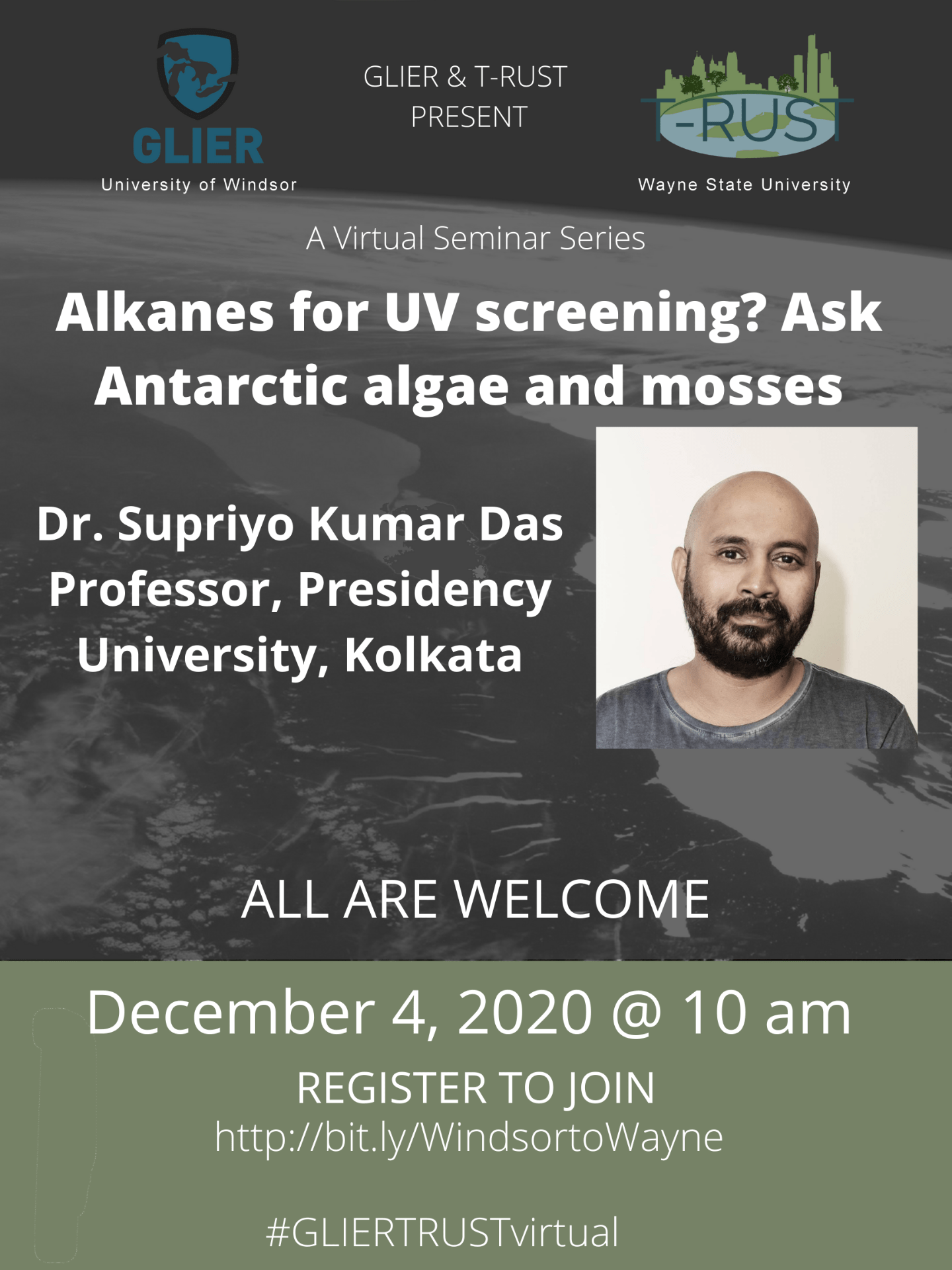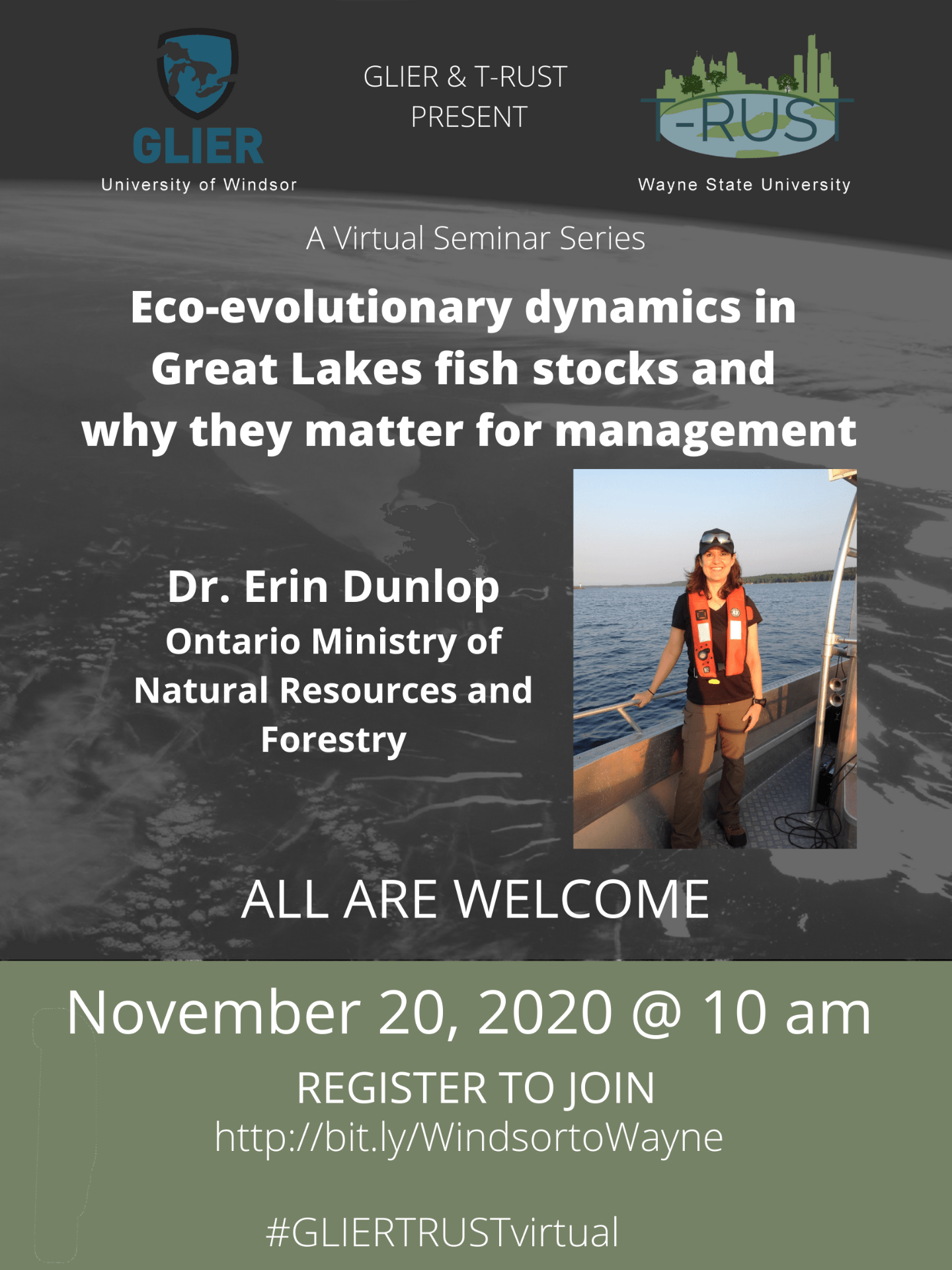This is part of an ongoing collaborative, student-led seminar series hosted by T-RUST (Transformative Research in Urban Sustainability Training) at WSU and GLIER (Great Lakes Institute for Environmental Research) at the University of Windsor. The seminar series is titled Transformative Change in Environmental Sustainability and occurs biweekly on Fridays at 10am.
Title: Alkanes for UV screening? Ask Antarctic algae and mosses
Speaker: Dr. Supriyo Kumar Das, Department of Geology, Presidency University in Kolkata, India
When: Friday, December 4, 10am
Where: Virtually on Zoom, register here: http://bit.ly/WindsortoWayne. The Zoom link will be sent to the email used for registration two days before the seminar.
Change in moss leaf colour from green to grey and grey to black (moribund), and lake benthic algal mat pigments from green to red-green, red-green to red and red to grey are observed in Larsemann Hills of East Antarctica. A systematic change in the distribution of short-chain (n-C17 to n-C20) versus long-chain (n-C21 to n-C30) n-alkanes in accordance with the changes in moss and algal mat pigment is also noted. The research links the relatively higher synthesis of short-chain n-alkanes with respect to the long-chain n-alkanes in algal mats and mosses to increasing exposure to ultraviolet (UV)-B radiation and propose that short-chain n-alkanes functions as UV screening compounds (UVSC) for protection against harmful UV-B radiation in Antarctic moss and lake benthic algal mat.
Supriyo Das was awarded PhD in Biogeochemistry by Stockholm University in 2007. After finishing PhD, Dr Das continued his research as a postdoctoral researcher at NIOZ, University of Glasgow, Örebro University and Linnaeus University. During his research, he received prestigious EAOG scholarship, British Council and Swedish Research Council fellowships. He is presently working as an Assistant Professor at Presidency University in Kolkata. His research applies elemental, molecular and stable isotope geochemistry to understand the interaction between continually changing climate, environment and human activities. He was a member of IODP expedition 354 and 38th Indian Scientific Expedition to Antarctica.
You can find Dr. Das on Twitter (@Dr_Supriyo_Das) or on his research page here.
 Catch Up With T-RUST
Catch Up With T-RUST

